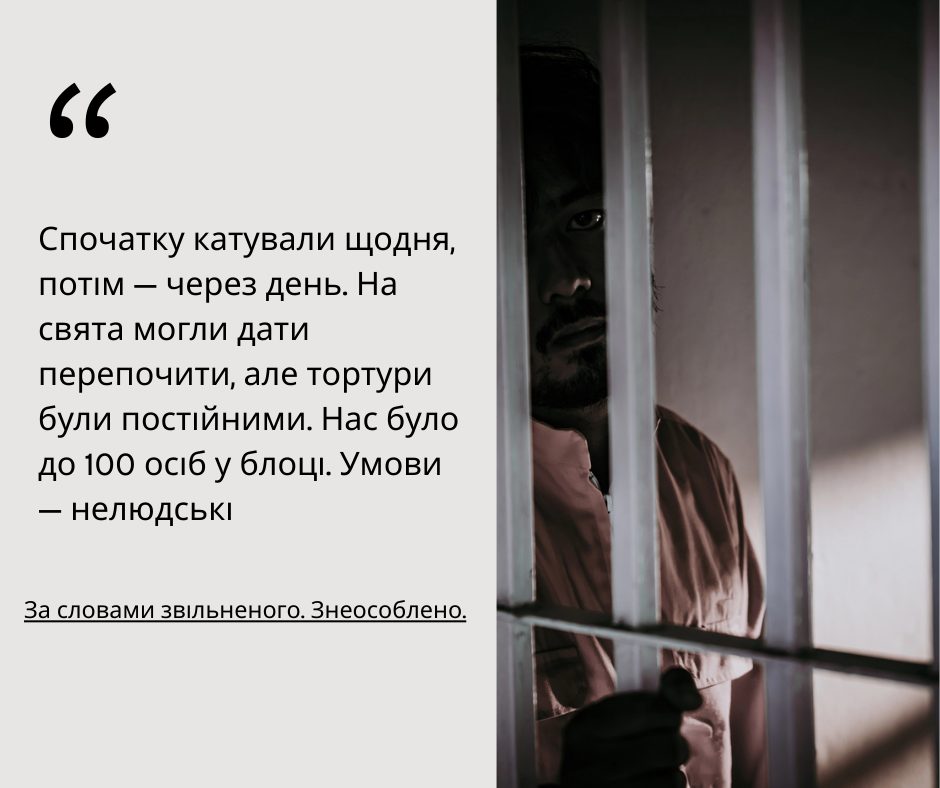

At the beginning of the full-scale invasion, the occupiers massively abducted civilians in the Kherson region. One of them was a man who worked for a humanitarian organization and helped evacuate people. In April 2022, he and a colleague were detained by FSB officers at a checkpoint in Kalanchak. Both were accused of “connections with the SBU”. The detainees were sent to the Simferopol pre-trial detention center, where systematic torture began.
According to the man, he was held for about five months: - beaten daily, sometimes several times; - applied electric current, including to the most sensitive parts of the body; - kept in a cell without the opportunity to sit or lie down normally; almost never taken out for walks; - used psychological pressure, including threats of rape. "At first they tortured every day, then every other day. They could give them a break on holidays, but the torture was constant. There were up to 100 of us in the block. “The conditions are inhuman,” he recalls. He saw other detained civilians in the cell, including elderly people, local activists, and former military personnel. Some of them were later sentenced to long-term sentences on fabricated charges.
The man was eventually released in the fall of 2022 without explanation or charges. After his captivity, he spent a long time recovering from physical and psychological trauma: weight loss, leg problems after torture, migraines, aggression, and panic attacks. He is now under the supervision of doctors and psychotherapists.
This testimony is yet another piece of evidence of Russia’s systematic torture and persecution of civilians in the occupied territories of Ukraine. The story has been anonymized at the request of the released person.
This documentation project is supported by the Norwegian Helsinki Committee (NHC). The views and conclusions expressed in this publication are those of the authors alone and do not necessarily reflect the position of the NHC.